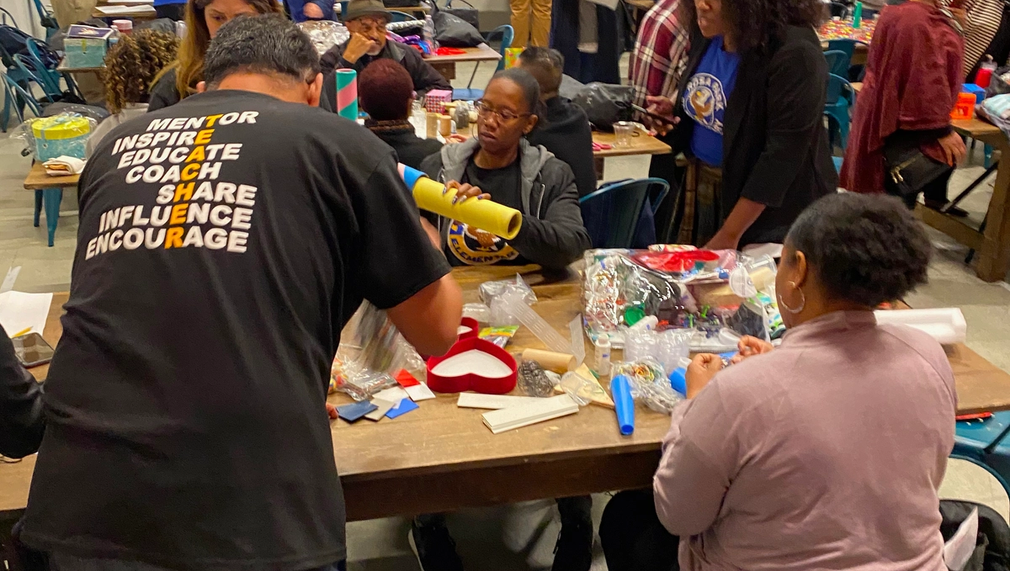PreK-12 Music Production as an Agent of Change
Two Bit Circus Foundation will conduct its five-week Digital Music Production class in ten Los Angeles area Middle Schools, teaching students how to produce and engineer their own songs. Through the use of Digital Audio Workstations, our classes focus on the production process - composition, engineering, mixing and recording. Choosing schools in the Music Desert of most low/moderate income communities, our program will provide cognitive stimulation and encourage reading and STEM proficiency.

What is the primary issue area that your application will impact?
Access to Creative Industry Employment (sponsored by Snap Foundation)
In which areas of Los Angeles will you be directly working?
City of Los Angeles
LAUSD (select only if you have a district-wide partnership or project)
In what stage of innovation is this project, program, or initiative?
Pilot or new project, program, or initiative
What is your understanding of the issue that you are seeking to address?
The ocean of corporate analysis around racial equity following George Floyd's murder revealed inequality and racial inequity throughout the music sector. According to the Grammy Music Education Coalition, 3.8 million US preK-12 students have no access to music education and its benefits. Yet 89% of teachers and 82% of parents rate music education highly as a source for greater student creativity. In 2019 an essay in Sociology said while research shows that music increases reading comprehension and provides cognitive stimulation, preK-12 schools in low-income "Music Deserts" have fewer or no music resources, depriving lower income communities of benefits associated with music participation. Only European classical music gets to be called "music" without an adjective like "popular" or "alternative." And, according to a 2020 article in Rolling Stone, "The music industry was built on racism." Rich/white label owners make millions by systemically robbing their artists of color.
Describe the project, program, or initiative this grant will support to address the issue.
Introduced during the pandemic, the 2BCF Afterschool Music program teaches students to produce and engineer their own songs, encouraging creativity and experimentation throughout the course. Through the use of Digital Audio Workstations, we show students how to use virtual studio technology along with recorded audio to create a final production. Students learn to import/export audio stems, build a master session of a demo song, and record an element of their own, using their voice or instrument of choice. Our classes focus on the production process from start to finish, teaching composition, engineering, mixing, recording, and other intricacies of digital music production. Many of our students are aspiring musicians who can no longer attend or have lost their band classes. This program helps these students to continue collaborating and expanding their skills. The Afterschool (virtual) Music Program was introduced to 28 students as an afterschool program at SoLA, a South LA nonprofit, 2 hours once a week for 5 weeks, and to 36 students at Locke High School in Watts, integrated into their one hour/weekly advanced band class. With an invitation to return to Locke High, and as resources allow, 2BCF will expand the Music Program to 10 underserved schools within LAUSD beginning with two schools who have already booked the program.
Describe how Los Angeles County will be different if your work is successful.
By introducing this new preK-12 Digital Music Program and expanding it to ten Middle Schools, more kids from underserved schools in Music Desert communities will experience the joys and benefits of actively participating in music, realize the benefit of greater cognitive stimulation, and open for themselves a pathway to explore a career in music. In time with more students honing their musical interests, we may see more students of color pursuing higher music education to produce a broader definition of music in which communities around the world can feel a part. And, more of our students will find a pathway into the music industry which will start to shift the racial/ethnic balance of power either from within or outside. Artists will retrieve their masters which are routinely stolen by major-labels as a condition of their contracts. Executives will be held accountable for their behavior. And, music will be music, no matter who writes it, performs it, produces or releases it.
What evidence do you have that this project, program, or initiative is or will be successful, and how will you define and measure success?
Our pilot program for the Les Paul Music workshop at Vine Street Elementary School in Hollywood, CA produced seven students with no prior music production experience who created original songs, using samples and loops contained in the software. Throughout, there were experiments in tempo and loops, while others used their computers as instruments, playing notes with the keys and creating melodies and chords for their compositions. A zoom class using cloud-based music software accessible through students' Chromebooks, our desired outcome was for each student to use an audio sample and create an effect chain with the software provided. Our hope was that each student, starting with the same sample, would create a unique result. In the Social Emotional Learning component of the class, using emotional cue cards, we discussed the healing properties of music and how to write your emotions into a melody to express feelings. Going forward, we will use pre-then post surveys to measure impact.
Approximately how many people will be impacted by this project, program, or initiative?
Direct Impact: 600
Indirect Impact: 1,500